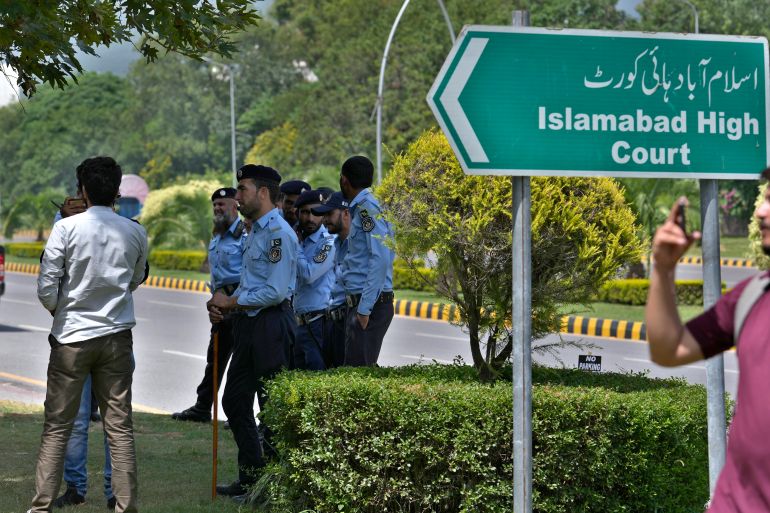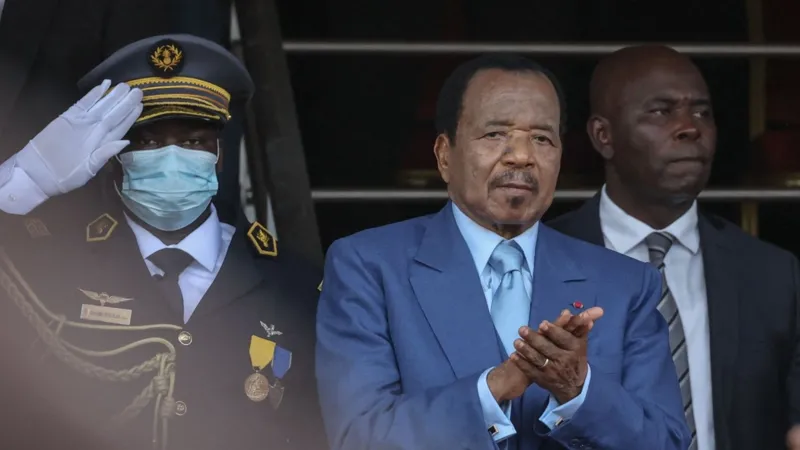More than a dozen Pakistani judges receive letters with ‘toxic’ powder
Letters containing a suspicious white powder sent to at least 17 top judges, prompting an investigation by the authorities.

More than a dozen senior judges in Pakistan have received letters containing a suspicious white powder since Tuesday, prompting an investigation by the authorities.
On Tuesday, all the eight judges of the Islamabad High Court received similar mails, with a note in English criticising the “justice system of Pakistan” and even mentioning the term, bacillus anthracis, according to a first information report (FIR) filed by the police in the capital, Islamabad.
Bacillus anthracis is a bacteria that can cause anthrax, a serious infection which can be fatal if immediate treatment is not given.
The next day, four Supreme Court judges, including Chief Justice of Pakistan Qazi Faez Isa, and five judges of the Lahore High Court also received similar letters with the suspected “toxic” material.
Police said a lesser-known group called Tehreek-e-Namoos Pakistan has claimed responsibility for the suspicious letters.
Police officials in Islamabad and Lahore said the letters and their contents have been sent to forensic and security experts for investigation. The authorities have not yet confirmed what the white powder was.
“We are conducting our investigation and we shall provide a prompt update as soon as we have a breakthrough,” a police official involved in the investigation told Al Jazeera on condition of anonymity because he was not authorised to speak to the media.
Tehreek-e-Namoos Pakistan was first heard of in September last year when the authorities were alerted about a suspicious bag found at an upscale hiking trail in Islamabad. The bag contained a letter, hand grenades, a pistol, some bullets and maps of sensitive buildings in the city.
In that letter as well, the obscure group had criticised the “justice system”, saying it had decided to “teach a lesson to judges and generals”. The investigation into the incident is on.
The toxic mails to the top judges came about a week after six judges of the Islamabad High Court wrote a scathing open letter to the Supreme Court, alleging interference by Pakistan’s premier spy agency, the Inter-Services Intelligence (ISI), in judicial matters.
The judges said the ISI had used “intimidatory” tactics such as secret surveillance and even abduction and torture of their family members to influence their decisions in “politically consequential” cases, including against jailed former Prime Minister Imran Khan.
The ISI and the Pakistani military have not yet responded to the allegations.
The government, on its part, formed a one-member commission to investigate the matter. However, the retired judge appointed to the commission refused to take up the responsibility. Subsequently, the Supreme Court constituted a seven-member bench to investigate the allegations made in the unprecedented letter by the judges.
The first hearing of the bench was held on Wednesday, with Chief Justice Isa saying there will be “zero tolerance” as far as threats to the independence of the judiciary are concerned. The next top court hearing on the matter will be held on April 29.
Karachi-based lawyer Abdul Moiz Jaferii said the judges receiving allegedly toxic letters appear “rather peculiar and bizarre due to its timing”.
“From the contents of the letter that was sent, along with the so-called toxic substance in it, it is difficult to determine any commonality of motive for why these judges have been sent these missives,” Jaferii told Al Jazeera.
Imaan Zainab Mazari-Hazir, a human rights lawyer in Islamabad, said whether the letters to the judges are “substantial or a hoax” must be investigated.
Lahore-based lawyer Rida Hosain concurred, saying judges being “explicitly intimidated” is a matter that requires serious and urgent attention.
“No justice system can function if judges are being threatened. It strikes directly at the ability of the judges to decide cases before them without fear and favour,” she told Al Jazeera.
-al jazeera







